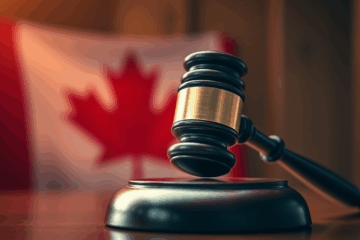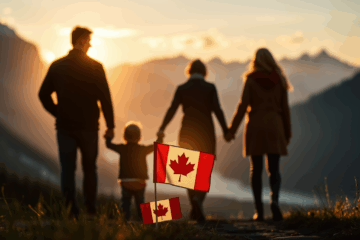Guidelines for Minors Traveling to Canada as Visitors
Traveling to Canada with minor children requires careful planning and adherence to specific guidelines to ensure a smooth entry into the country. In this article, we will outline the necessary documents and authorization procedures for minors traveling alone or with accompanying adults other than their parents or legal guardians.
Table of contents
Minors Entering Canada
In Canada, individuals under the age of 18 are classified as minors and are subject to the same entry regulations as other visitors. It is crucial for minors to possess the appropriate documents to avoid any complications or delays at the border. Furthermore, minors traveling without their parents or legal guardians may undergo more thorough scrutiny by border services officers, who prioritize the safety and welfare of children.
Traveling Alone
When a minor child is traveling alone to Canada, they must present the following documents:
- A valid passport in their own name. It is important to note that a parent’s passport, even if the child’s details are included, cannot be used as a substitute.
- A copy of their birth certificate.
- A letter of authorization, preferably written in English or French, signed by both parents or their legal guardians. This letter should include the parents’ or legal guardian’s address, telephone number, and contact details of the responsible adult who will be supervising the child during their stay in Canada.
Traveling with One Parent
If a minor child is traveling with only one parent, the following documents should be presented:
- The child’s passport.
- A copy of the child’s birth certificate.
- A letter of authorization, preferably written in English or French, signed by the non-traveling parent. This letter should include the non-traveling parent’s address, telephone number, and a photocopy of their signed passport or national identity card.
Separated or Divorced Parents
In cases where parents are separated or divorced and share custody of the child, additional documentation is required:
- The parent traveling with the child should carry copies of the legal custody documents.
- It is advisable to obtain a letter of authorization from the other parent, granting permission for the child to travel abroad. This letter should be kept as a precautionary measure.
If one parent has sole custody due to separation or divorce, the letter of authorization can be signed by that parent alone. Additionally, a copy of the custody decree should be carried during travel.
Deceased Parent
In situations where one of the child’s parents is deceased, the traveling parent should possess a copy of the death certificate as proof.
Traveling with a Legal Guardian or Adoptive Parents
If a minor child is traveling with a legal guardian or adoptive parents, it is necessary to carry relevant documentation such as guardianship papers or adoption papers, depending on the circumstances.
Traveling with an Adult other than Parents or Legal Guardians
When a minor child is accompanied by an adult who is neither their parent nor legal guardian, the following requirements must be fulfilled:
- The adult accompanying the child should possess written permission from the parents or legal guardians to supervise the child.
- The permission letter should include the addresses and telephone numbers where the parents or legal guardian can be reached.
- The letter does not require certification, but it is advisable to attach photocopies of the parents’ or legal guardian’s signed passports or national identity cards.
Ensuring hassle-free entry into Canada for minor children involves meticulous preparation and adherence to the specified guidelines. While border services officers may not always request these documents, it is strongly recommended to carry them to prevent any potential issues. The authorization and documentation requirements prioritize the safety and well-being of minor travelers, ensuring their parents or legal guardians have authorized their visit to Canada. By following these guidelines, parents can help facilitate a smooth and enjoyable travel experience for their children.
Discover more from Pax Law Corporation
Subscribe to get the latest posts sent to your email.



0 Comments